Beautiful Hollyhocks In Pots – Follow These 7 Steps To Success
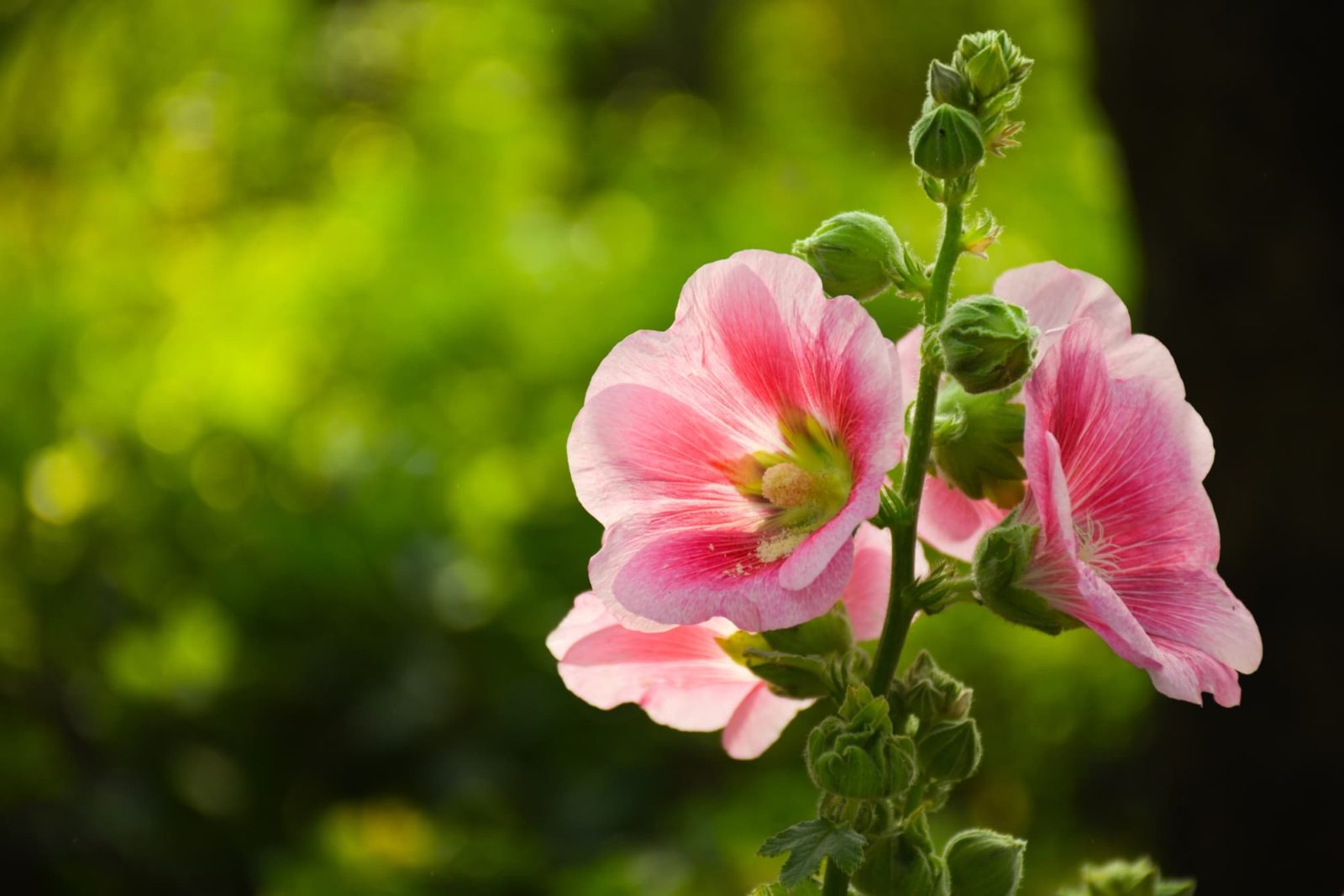
BIENNIALS > HOLLYHOCKS > CONTAINERS

Elizabeth is a Permaculture Garden Designer, Sustainability Consultant and Professional Writer, working as an advocate for positive change. She graduated from the University of St. Andrews with an MA in English and Philosophy and obtained a Diploma in Applied Permaculture Design from the Permaculture Association.
Reviewed By PETER LICKORISH

Peter is a Horticulture Lecturer and self-employed Horticulturist, with a passion for diverse areas of the industry - from garden design to the science behind plant growth and propagation. He has completed the Royal Horticultural Society’s Master of Horticulture (MHort) Award and lectures on RHS courses at Bedford College.
IN THIS GUIDE
Hollyhocks are popular cottage garden border plants.
However, if you are limited in the space you have available and still want to grow these popular plants, then you might wonder whether hollyhocks are an option for a container garden.
| Difficulty | Medium |
| Equipment Required | Large container, growing mix, suitable support |
Can You Grow Hollyhocks In Pots?
Hollyhocks are certainly not the best nor easiest option for container cultivation.
If you can grow them in the ground then this is definitely the easier option and will lead to much better results.
The problem is that hollyhocks are tall plants.

They have deep tap roots as well as lateral roots that like to spread out below the ground.
So, finding a container large enough to support healthy root growth can certainly be a challenge.
While you can potentially grow hollyhocks in a very large container, such as a 50-gallon drum or an old whisky barrel, the results may still be patchy and poor.
Where possible, it is certainly better to grow hollyhocks in the ground or to choose more suitable plants for your container garden.

Container-grown hollyhocks will also certainly require a lot more work and attention than those growing in the ground, especially when it comes to watering.
If you do decide to grow hollyhocks in a container, then that container needs to be as large as possible, ideally very deep and with decent width too.
You will also need to carefully consider the variety of hollyhock that you choose; opt for a shorter dwarf variety rather than one that can grow 2m or taller.
1) Choose A Wide & Deep Container
Ideally, your container should be, at the very least, 60cm wide and more than 1m deep.
Any container that is smaller than this will not allow the extensive and deep roots of the hollyhock to grow as they should.
If roots cannot form healthily, then the plant will be stunted, fail to thrive and flowering will be diminished.

You could potentially use a suitable barrel or butt in which to grow hollyhocks if you want them in your container garden.
Remember that you may need to think about some support for the hollyhocks if you live in a windy location.
Your barrel or butt will need to be placed against a wall or fence in a very sheltered spot.
It must also have good drainage at the base.
2) Use A Moist, Mulched Growing Medium
Filling your large container will be the next challenge if you do decide to grow hollyhocks in this way rather than in the ground.
Hollyhocks need moist but well-drained soil.
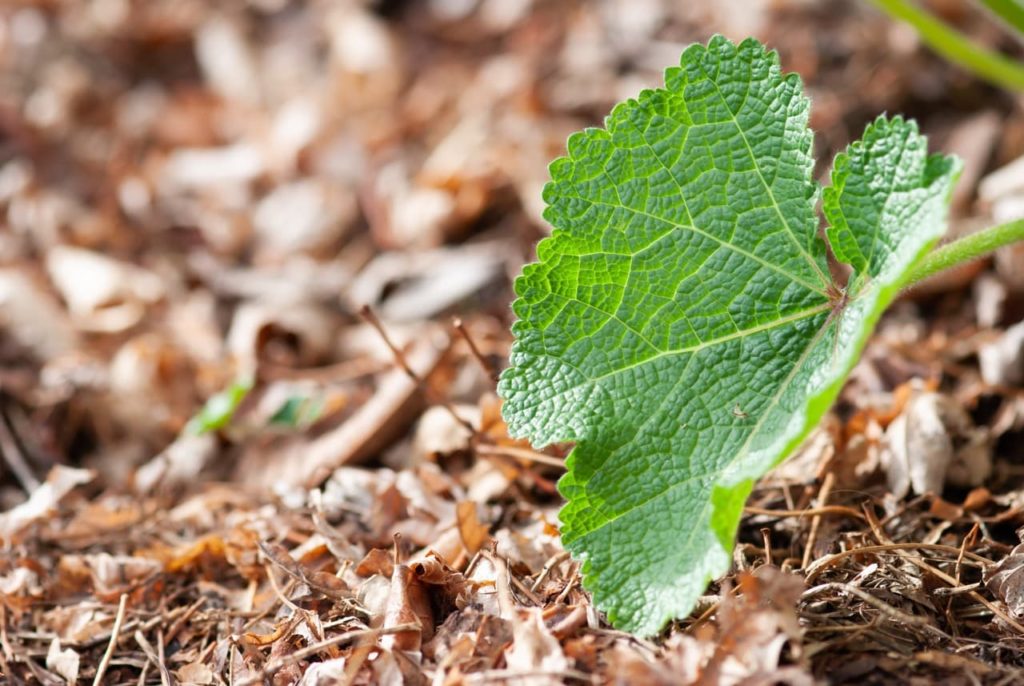
A peat-free soil, loam-based potting mix or a homemade equivalent with plenty of organic matter may work.
If you are growing hollyhocks in containers, you will need to add fertility by laying mulch at the top of the container around the base of the plant each year.
3) Replace After Flowering
Hollyhocks are short-lived perennials, but it is generally best to replace the plants once they flower because they are prone to a fungal infection called rust.
Sow or pot them up in the spring of one year and they will flower in the summer of the following year.

If you have grown your hollyhocks from seed, you will have started your seeds indoors in April or May.
Pot-grown plants can be planted out in June, through the summer or in early autumn.
4) Tie In Supports
If you are absolutely determined to grow hollyhocks and can only do so in containers, be prepared to keep a close eye on your plants.
Remember that you may need some support to which you can tie in your hollyhocks as they grow, especially if you are growing a taller cultivar or live in an area where gusty winds may be a problem.
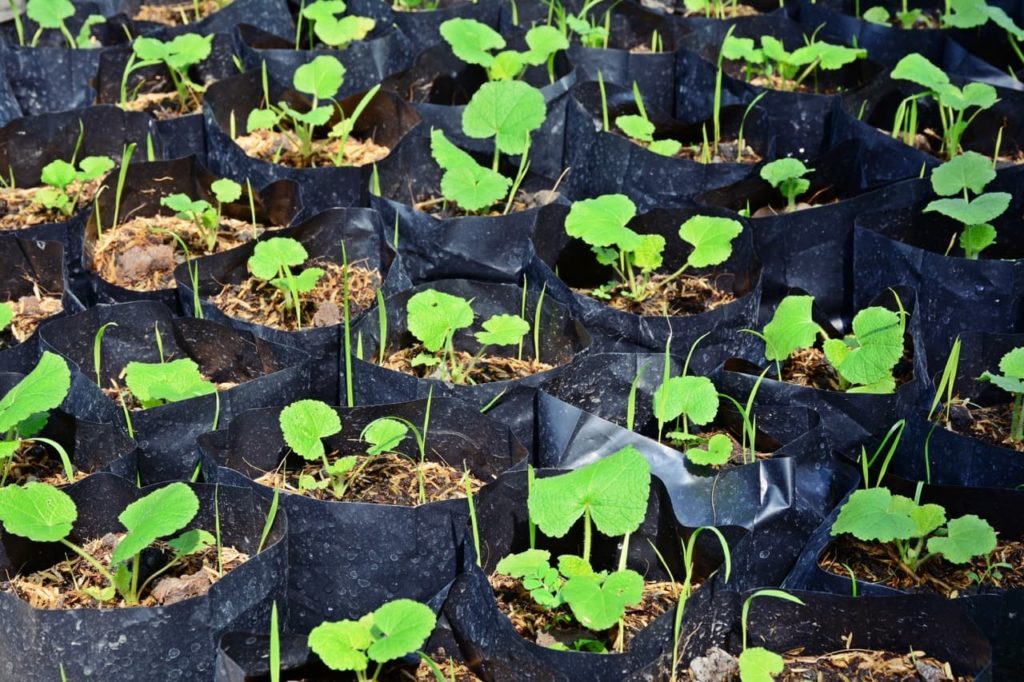
Make sure that you position your containers in a suitable spot in full sun, ideally in a sheltered south or west-facing spot against a sunny wall or fence.
“Hollyhocks will rapidly increase in height just before flowering,” says Master Horticulturist Peter Lickorish.
“This is the vulnerable stage! I use a metre-long cane, inserted to a third of its depth, and tie the emerging stem loosely to this. I use a figure eight knot of garden string.”
5) Water Well (But Don’t Overwater!)
Hollyhocks growing in the ground typically need to be kept moist and watered when young and while they become established in order to grow strong and healthy roots.
However, when growing in a container, you will likely have to continue to water regularly to keep the growing medium moist (but not waterlogged) during the growing season.
Do not overwater though, and keep the water off the leaves, making sure that excess water can always drain away freely.
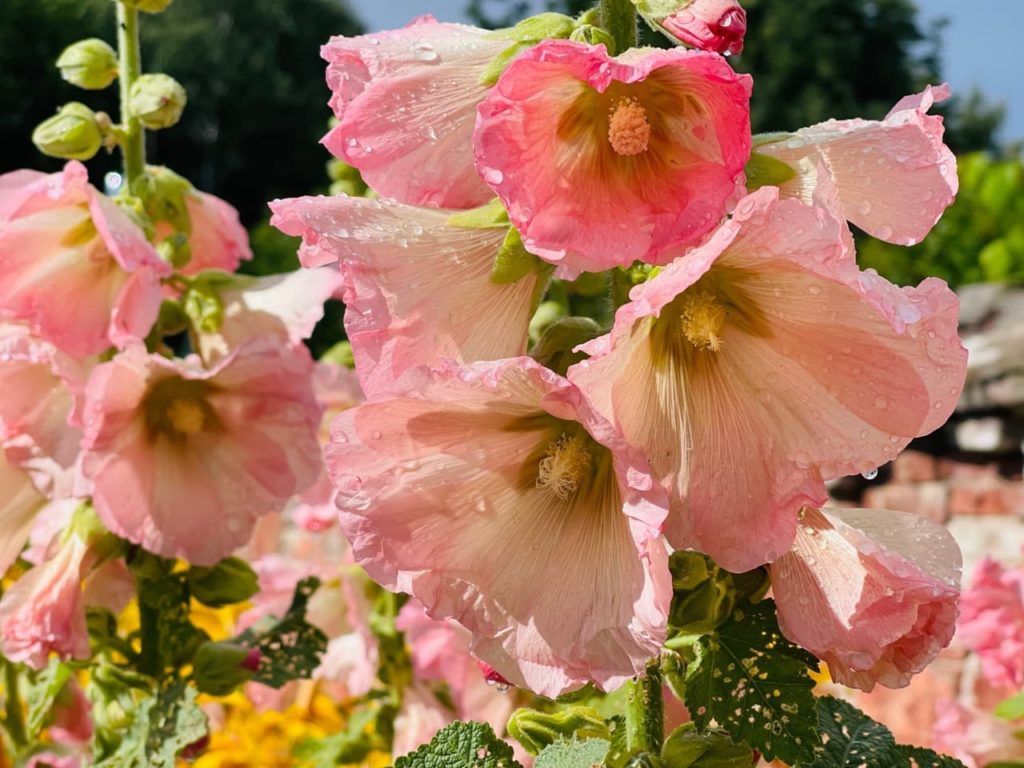
You may struggle to get water to the roots effectively when growing hollyhocks in a container.
Make sure that you do not just water the surface, but water deeply so water seeps out of the bottom of the barrel or the other large container you have used.
Hollyhocks typically won’t need feeding other than with the mulches of organic matter or compost that you add to the surface after planting.
6) Watch Out For Rust
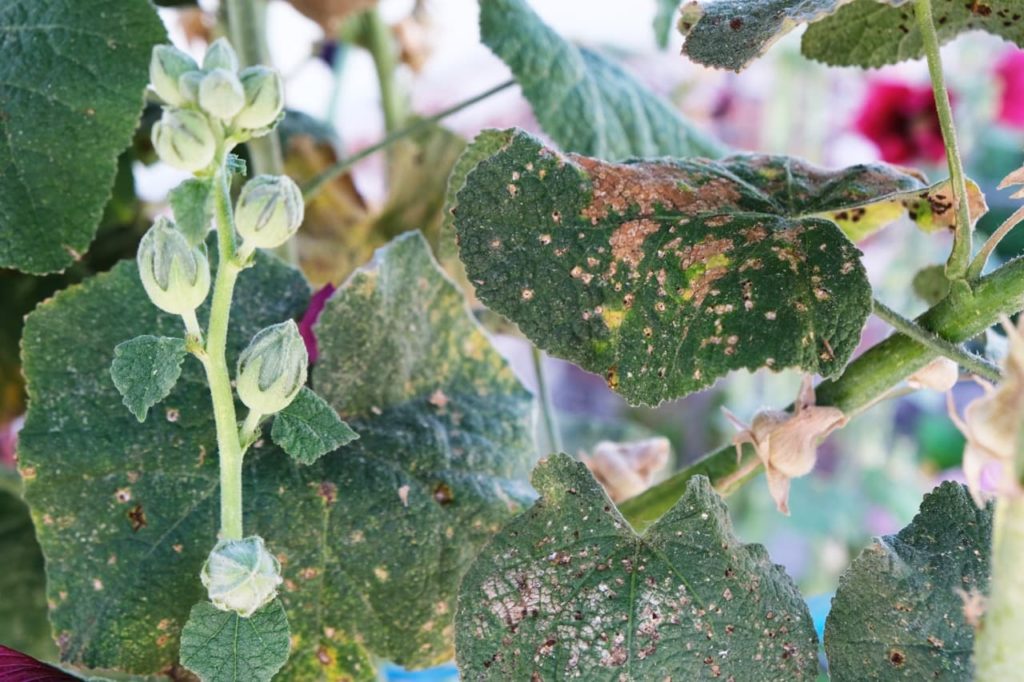
Remain vigilant for rust, as this fungal infection is very common on hollyhocks.
Remove any badly affected material promptly to avoid severe infections.
7) Cut Back The Flowering Stalks
After hollyhocks flower in their second year, you can cut the flowering stalks back to the base or you can wait for the seeds to develop and then collect them.
It is often best to treat hollyhocks as biennials and discard or replace them with seedlings after they flower, but they can last for a couple more years if rust does not take them out.
With all this said – though theoretically possible, growing hollyhocks in containers is certainly not something that I would recommend.
There are plenty of other cottage garden favourites that I’d argue are much better suited to container cultivation.
